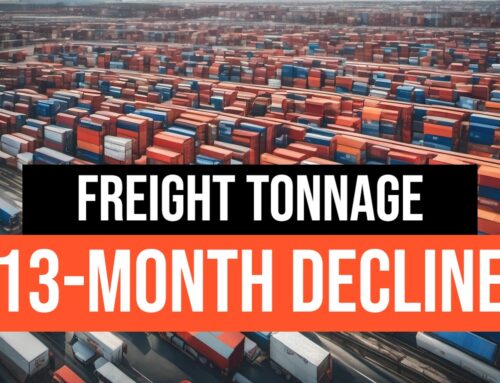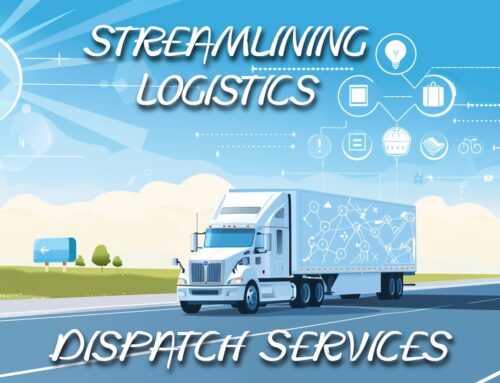Table of Contents
The global shipping crisis has exposed the fragility and interdependence of the world’s trade networks, which have been strained by a series of unprecedented shocks. The Red Sea crisis, which started as a political conflict between Egypt and Ethiopia over the Grand Ethiopian Renaissance Dam, escalated into a military confrontation that blocked the Suez Canal, one of the most important waterways for global commerce. The canal, which handles about 12% of the world’s trade, was closed for several weeks, causing massive delays and losses for shippers and consumers alike.
The ongoing COVID-19 pandemic has also contributed to the disruption of global shipping, as countries imposed lockdowns, travel bans, and quarantine measures to contain the virus. The pandemic has affected both the supply and demand sides of the equation, reducing the availability of labor, materials, and equipment, as well as the consumer spending and confidence. The pandemic has also created imbalances in the distribution of containers, which are essential for transporting goods by sea. Many containers have been stuck in ports or warehouses, unable to return to their origin or destination, creating shortages and surcharges for shippers.
And to make matters worse, the recent windstorms that swept across the Atlantic and Pacific oceans have caused havoc for sea and air freight, delaying shipments and increasing costs. The windstorms disrupted the normal patterns of ocean currents and air pressure, creating strong winds and waves that hampered the navigation and safety of ships and planes. The windstorms also affected the power grids and infrastructure of many coastal regions, further complicating the logistics and operations of the shipping industry.
These events have had a ripple effect on the U.S. transportation industry, which relies heavily on global supply chains. The demand for domestic transportation services has skyrocketed, as shippers scramble to find alternative routes and modes of delivery. This has created a golden opportunity for trucking companies and truck drivers, who can benefit from the rising rates and the increased demand. However, this opportunity also comes with challenges, as truckers have to adapt to the changing market conditions and customer expectations.
The Challenges of a Turbulent Market
This opportunity also comes with its own set of challenges. Truckers have to contend with higher fuel costs, stricter regulatory changes, and the risk of inflation. They also have to deal with the uncertainty of the spot market, which can fluctuate depending on the economic conditions and consumer behavior. Moreover, they have to face the problem of overcapacity, which can erode their profits and competitiveness.
Fuel Cost and Inflation – The Trucker’s Double Whammy
One of the biggest challenges for truckers is the rising cost of fuel, which accounts for a significant portion of their operating expenses. Truckers have to find ways to improve their fuel efficiency, such as maintaining proper tire pressure, reducing idling time, using cruise control, and avoiding aggressive driving. They also have to negotiate fair and transparent rates with shippers and brokers, taking into account the fuel surcharges and other fees.
The Impact of Regulatory Changes on Truckers
Another challenge for truckers is the changing regulatory environment, which can affect their compliance and safety. The FMCSA has proposed or implemented several changes to the current trucking regulations, such as the Entry-Level Driver Training (ELDT) rule, the Drug and Alcohol Clearinghouse, the Automated Driving Systems, the Automated Emergency Braking, the Speed Limiter, and the Electronic IDs. These changes aim to improve the quality and safety of the trucking industry, but they also impose new requirements and costs for truckers. Truckers have to stay updated and informed about the latest regulations, and ensure that they meet the standards and expectations of the authorities.
A third challenge for truckers is the risk of inflation, which can erode their purchasing power and savings. Inflation is the general increase in the prices of goods and services over time, which reduces the value of money. According to the U.S. Bureau of Labor Statistics, the annual inflation rate for the United States was 3.4% for the 12 months ending December, compared to the previous rate of 3.1%, as energy prices went down at a slower pace. Inflation can be caused by various factors, such as the supply and demand of goods and services, the monetary and fiscal policies of the government, the exchange rates of currencies, and the expectations of consumers and businesses. Inflation can affect truckers in several ways, such as increasing the cost of living, reducing the real income and profits, increasing the interest rates and debt payments, and decreasing the competitiveness and demand for their services. Truckers have to plan ahead and budget wisely, and seek ways to increase their income and savings, such as diversifying their revenue streams, investing in assets that appreciate in value, and taking advantage of tax deductions and credits.
How to Stay Ahead of the Curve
A fourth challenge for truckers is the uncertainty of the market, which can fluctuate depending on the economic conditions and consumer behavior. The trucking market is influenced by various factors, such as the global trade, the industrial production, the retail sales, the inventory levels, the weather, the seasonality, and the events. These factors can affect the supply and demand of freight, and consequently, the rates and volumes of trucking services. The trucking market can be volatile and unpredictable, and truckers have to be flexible and adaptable, and respond quickly to the changing market conditions. Truckers have to monitor the market trends and indicators, and use reliable and accurate data and tools that cost a lot of money, or they can use services of companies such as AFT Dispatch to find the best loads and routes, and negotiate the best rates and terms for them.
The Causes and Consequences of Overcapacity
A fifth challenge for truckers is the problem of overcapacity, which can erode their profits and competitiveness. Overcapacity occurs when the supply of trucks exceeds the demand for freight, creating a surplus of capacity and a shortage of loads. Overcapacity can be caused by various factors, such as the influx of new entrants, the expansion of existing fleets, the decline of freight demand, the increase of competition, and the inefficiency of operations. Overcapacity can affect truckers in several ways, such as lowering the rates and margins, increasing the empty miles and waiting time, reducing the utilization and productivity, and weakening the bargaining power and customer loyalty. Truckers have to find ways to reduce their excess capacity, such as optimizing their routes and schedules, consolidating their loads, partnering with other carriers, and outsourcing their non-core functions.

The Solution: A Reliable and Professional Truck Dispatch Service
So how can truckers thrive in this turbulent environment? How can they capitalize on the high demand while minimizing the costs and risks? How can they ensure their long-term success and stability in the industry?
The answer is simple: they need a reliable and professional truck dispatch service.
A company that acts as a middleman between truckers and shippers, finding the best loads and routes for the truckers, negotiating the rates and terms, and handling the paperwork and logistics. Experienced truck dispatchers can help truckers save time, money, and hassle, while maximizing their earnings and efficiency.
Good truck dispatchers help truckers understand the market trends and indicators, and use reliable and accurate data and tools to find the best loads and routes. Strong truck dispatching can offset the rising fuel costs, the risk of inflation, the uncertainty of the market, and the problem of overcapacity.
Competent truck dispatchers give truckers a sense of security and support, giving them peace of mind and confidence. A truck dispatch service can act as a partner and a friend to truckers, who understand their needs and challenges. A truck dispatch service can be the solution that truckers need to thrive in the midst of this global shipping chaos. Your dispatcher should take advantage of the high demand and rates in the market, and help you grow your business and achieve your dreams.
Why Choose AFT Dispatch as Your Truck Dispatch Partner
At AFT Dispatch, we are more than just a truck dispatch service. We are a partner and a friend to truckers, who understand their needs and challenges. We have been in the industry for over a decade, and we have the experience and expertise to help truckers navigate the complex and dynamic world of global shipping.
We offer a range of benefits and services to our clients, such as:
- Access to thousands of loads from reputable brokers and freight-forwarders across the U.S.
- Dedicated dispatchers who work with you one-on-one to find the best loads and routes for your preferences and goals
- Competitive and transparent rates, with no hidden fees or charges
- Support and assistance from a friendly and responsive team that is always ready to help you
Join us and Grow Your Trucking Business
Whether you are a small trucking company with a few trucks, or an owner operator with a single truck, AFT Dispatch can help you grow your business and achieve your dreams. We can help you take advantage of the high demand and rates in the market, while avoiding the pitfalls and challenges. We can help you thrive as a trucker in the midst of everything that’s going on in the world.
If you are interested in joining our truck dispatch service, or if you want to learn more about us, please fill out the form above and we will get in touch with you as soon as possible.
You can also call or text us at (801) 448-6363, and be sure to check out our vast collection of free educational videos for truckers.







[…] lies in stable fuel and financing costs, though even that can’t be known for certain with the Red Sea crisis putting lots of pressure on fuel cost. Plus of course there are other factors demanding careful […]